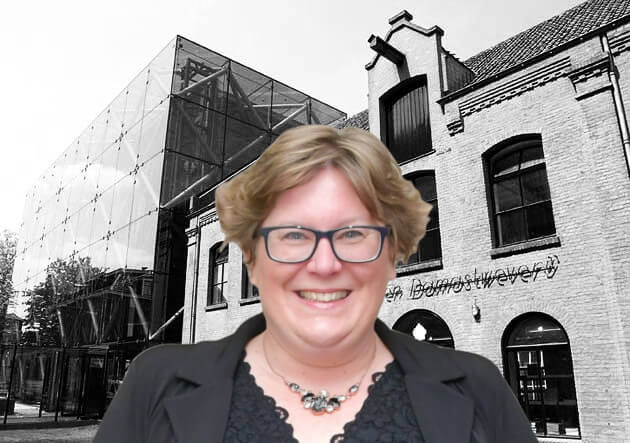
A crisis is the time to show your true colors. A crisis is a situation in which hard choices must be made. Where do you stand? What are you doing? What are you not doing? Who do you care about? Whose back have you got?
As an economist, I see life as a succession of choices; crisis or no crisis. Economics is frequently seen as a study of money, but in reality, it is the study of choice behavior. In an economic system, there is nothing that is infinitely available. Raw materials, labor, energy; of course they are all accessible, but eventually everything comes to an end. An economist studies the choices people make under the premise that everything has its limits.
Everything is a choice
Even if you do something the way that you have always done it, that is a choice. After all, you can decide to do things differently with each new day. Therefore, holding on to the status quo is also a choice. Situations in which the status quo are most challenged are those whereby the choices of people and organizations are the most interesting ones to study. After all, in times of crisis, a choice becomes just another one on the spectrum of right or wrong.
Unfortunately, our world has a fair amount of experience with crises. So, by extension, there are also plenty of examples of right or wrong. For instance, in Germany there are numerous companies that are still struggling with their Nazi past to this day. But there are also companies that did what they could do to help those in need. During the corona crisis, we saw Sywert van Lienden in the Netherlands choose the shady and sleazy path of lying and money-making, and Randstad choose the brighter path of aid and compassion.
Also interesting: Gé Moonen: ‘Circular economy is allowed to hurt a little bit too’
The question of whether you choose to be on the good or bad side of history is a sensitive one. After all, who decides what is good and evil? Of course, there are all kinds of different perspectives on this: from Kant’s deontological perspective to Hume’s utilitarian perspective, and everything in between, higher or lower.
Because economics is about making choices and ethics is about the moral soundness of those choices, economics and ethics have more in common than you might think at first glance. This is especially evident when you delve into the history of economics.
The founder of economics, Adam Smith (1723-1790), wrote not only the seminal work on economics, An inquiry into the Nature and Causes of the Wealth of Nations, but also a seminal work on ethics, The Theory of Moral Sentiments. In fact, The Theory of Moral Sentiments formed the moral foundation for his later economics book Wealth of Nations. Thus, economics and ethics not only go hand in hand; economics is nourished by ethics.
Moral compass
Since the outbreak of the horrendous war in Ukraine, we, as the world, are now in a new crisis. The status quo is being brutally disrupted, and so once again it is interesting to study what choices people and organizations are making. Are they doing what they have always done, or are they opting for a different path? It is remarkable how many organizations are making a conscious decision to choose a different path: H&M is shutting down sales in Russia, Elon Musk is making his satellites available to Ukraine, Apple is pulling the plug on just about everything in Russia, and so on and so forth.
Precisely because so many organizations are now consciously choosing a different path, it is all the more conspicuous when companies do not do that and remain entrenched in their own status quos. Booking.com, for example, stubbornly continues to advertise hotels in Ukraine – now “with the lowest price guarantee”. Turning off the Ukraine targeting in their Google advertising proved to be a choice too far for them. To keep on advertising hotels ravaged by bombs and shells in wartime – where on earth is your moral compass?
In the preceding crisis, the corona crisis, Booking.com also made a choice that left many wondering whether the people of that company had even ever heard of such a thing as a moral compass. Back then, the company caused a commotion amongst the general public because it applied for a lot of corona funding and at the same time paid out enormous bonuses. By advertising at the expense of a country at war, it proves that the company does indeed lack a moral compass.
Show your true colors
A crisis means that, as an organization, you have to show your true colors. The choices you make come under a magnifying glass and your moral compass becomes more important than ever. I have chosen to use this column to put the magnifying glass on (the lack of) a moral compass at Booking.com. Incidentally, in the past week I have approached Booking.com twice about the choices they have made and asked them to share their perspective on their choice behavior. So far, I haven’t received any response to this; even that is a choice.
About this column:
In a weekly column, alternately written by Eveline van Zeeland, Eugène Franken, JP Kroeger, Katleen Gabriels, Carina Weijma, Bernd Maier-Leppla, Willemijn Brouwer and Colinda de Beer, Innovation Origins tries to figure out what the future will look like. These columnists, sometimes joined by guest bloggers, are all working in their own way to find solutions to the problems of our time. So tomorrow will be good. Here are all the previous articles.








